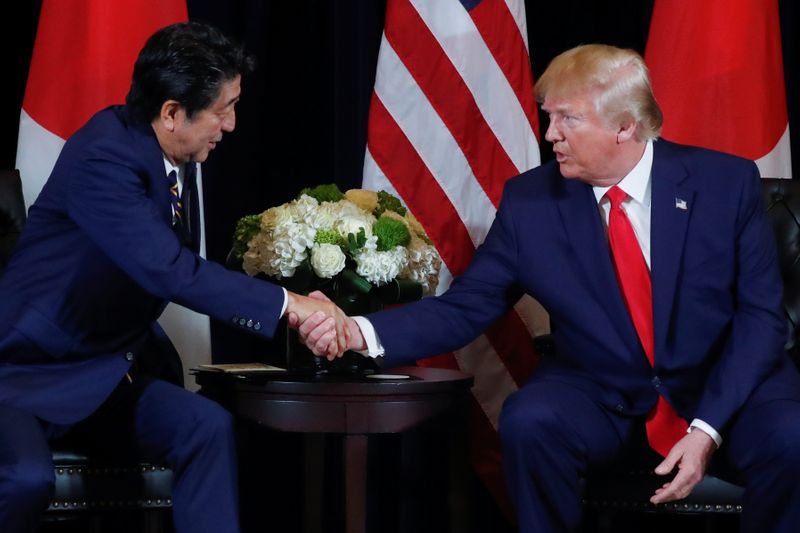TOKYO (Reuters) - Japanese Prime Minister Shinzo Abe told U.S. President Donald Trump that the strengthening of their two nations' alliance would be maintained even after Abe's departure from office, a Japanese government spokesman said on Monday.
Abe announced on Friday he was resigning because of poor health, his long-running battle with ulcerative colitis ending his tenure as Japan's longest-serving prime minister.
"He wants President Trump to rest assured because the policy of bolstering the Japan-U.S. alliance will remain unchanged," Deputy Chief Cabinet Secretary Akihiro Nishimura said.
Nishimura was speaking to reporters after a 30-minute telephone call between Abe and Trump, early on Monday in Japan. Trump called Abe the "greatest prime minister in Japan's history", according to a White House spokesman.
Abe told Trump that Japan would like to cooperate closely with the United States as it draws up a new missile defence strategy, Nishimura said.
Japan in July took a step towards acquiring weapons that can strike North Korea, after a ruling party committee approved proposals to consider acquiring strike capability to halt ballistic missile attacks.
White House spokesman Judd Deere said in a statement Trump told Abe he had done a "fantastic job" and that the relationship between their two countries was stronger than it has ever been.
"The president called Prime Minister Abe the greatest prime minister in Japan's history," Deere said.

The ruling Liberal Democratic Party will vote on Sept. 14 for a new leader to succeed Abe, Jiji news agency reported.